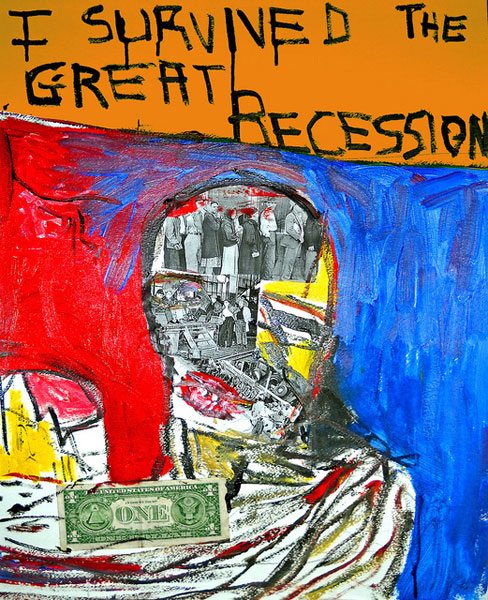
February 22, 2018; Pittsburgh Post-Gazette
The gap between the wealth of whites and Blacks in the US was wide before the Great Recession hit, and it’s even wider now, observes Tim Grant in the Pittsburgh Post-Gazette. This is the central finding, Grant notes, of a study released last week by the Center for American Progress, a Washington, DC-based think tank.
The study, authored by Angela Hanks, Danyelle Solomon, and Christian E. Weller, is titled Systematic Inequality: How America’s Structural Racism Helped Create the Black-White Wealth Gap. NPQ has covered the nation’s racial gap before. In September, NPQ noted that, absent policy change, the racial wealth gap is on a path to “grow ever wider in the years to come.”
What makes the Center for American Progress study unique is that it is one of the first studies to incorporate data from the Federal Reserve Bank’s Survey of Consumer Finances latest triennial survey, whose results were released last November. The Fed’s survey involves interviews of 6,500 families and is generally considered the most comprehensive in the field. The report looks at data from Fed surveys over the past 27 years (1989–2016), but it focuses on the four most recent surveys, conducted in 2007, 2010, 2013, and 2016. A key question animating the study is “What has been the impact of the Great Recession on racial wealth disparities?”
The short answer is that the Great Recession deepened preexisting racial wealth divisions. For example, in 2007, the mean household wealth of a black family was $154,165 or 19.3 percent of the mean white household level of $799,014 (both figures in 2016 dollars). As of 2016, however, the median black household wealth had yet to recover to the 2007 level and stood at $137,089, while mean white household wealth had risen to $921,657. As a percentage, mean black household wealth has fallen to 14.9 percent of the white household level, a dramatic decline from the 2007 level of 19.3 percent.
Sign up for our free newsletters
Subscribe to NPQ's newsletters to have our top stories delivered directly to your inbox.
By signing up, you agree to our privacy policy and terms of use, and to receive messages from NPQ and our partners.
Median household wealth data show a similar trend. Median numbers, of course, are much lower than mean numbers, since people with extreme wealth skew the mean or “average” upward, whereas median household wealth is simply the household wealth enjoyed by the family who is at the 50th percentile of the entire group. In 2007, the median wealth for Black families was $24,318 (again in 2016 dollars) or 12.4 percent of the white median wealth level of $196,585. In 2016, the median wealth for black families was $17,600 was just over 10 percent of the white median household level of $171,000.
As for why the gap has grown over the past decade, Hanks and her colleagues highlight two key causes. First, blacks were harder hit by the housing crash. “The housing crisis triggered during the Great Recession had a significant impact on Black wealth,” Hanks and her colleagues note, “in part because Blacks were more likely to have their wealth tied up in home equity.” Second, Blacks suffered much higher unemployment. As Hanks and her colleagues write, “In 2010, in the aftermath of the Great Recession, Black unemployment swelled to 16 percent, while white unemployment topped out at slightly less than 9 percent.
There are many reasons why the racial wealth gap persists, but one reason, authors note, has to do with the fact that, because of the existing wealth gap, white households are more likely to have “families and friends” who can help out in a financial emergency. According to Hanks and her colleagues, 43.8 percent of members of black households said they had friends or family that could support them during a financial emergency, compared to 72.5 percent of white households. The lack of family-and-friend support, of course, increases the chance that a temporary financial setback might lead to much more severe longer-term consequences (such as losing one’s home).
The policy solutions for closing the racial wealth gap are not obvious. The study authors outline a lot of potential policies, but suggest that the main approach should follow a principle developed by Berkeley law professor john powell known as “targeted universalism.” According to powell, targeted universalism means “setting universal goals and targeted means/processes.”
As Thomas Shapiro and Dedrick Asante-Muhammad elaborated last year, this targeted universalism approach involves recognizing “that groups are situated differently and that to promote a large, universal goal, the policy tools and instruments need to take current social structures into account.” Shapiro, who is based at Brandeis, notes that the Institute on Assets and Social Policy, which he directs, and Demos, a New York City-based think tank, have developed a Racial Wealth Audit tool to estimate in advance that impact of economic policies to “better understand if a new policy will improve or aggravate wealth inequities.”—Steve Dubb










